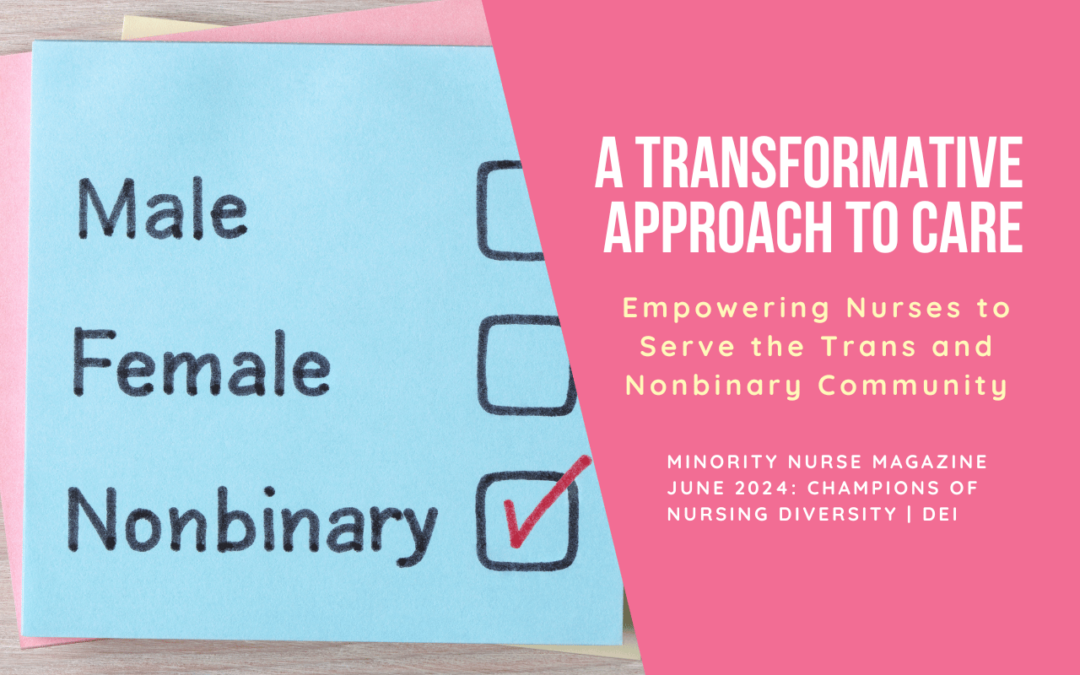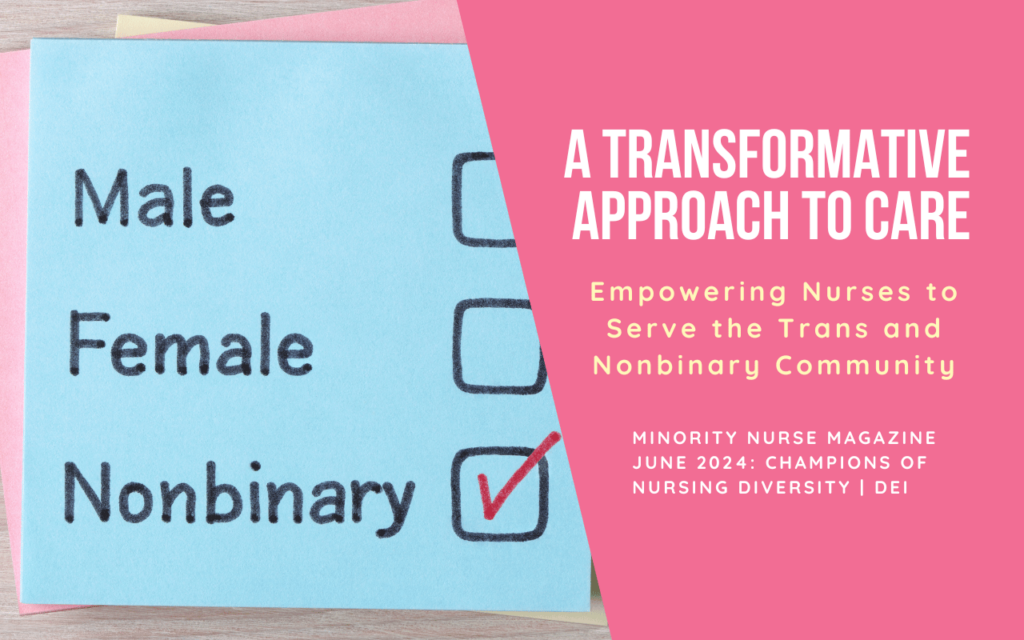
A Transformative Approach to Care: Empowering Nurses to Serve the Trans and Nonbinary Community
As nurses, no matter where we are in our careers, we all know there is always more to learn. In my 30-plus years as a nurse, I’ve also realized that while it’s essential to keep up with and, when appropriate, incorporate the newest technology and medical advances, we need to spend just as much time learning how to understand and relate to our patients as people. 
Working in the home care field here in New York City at the home- and community-based nonprofit VNS Health, my colleagues and I serve an incredibly diverse population. Our clinical teams are well-versed in the needs of those we serve. But over the years, it became clear to many of us across clinical specialties that one community was falling under the radar when it came to our education and training: trans and nonbinary individuals.
The real-life implications of these gaps in gender-affirming medical care cannot be understated. For example, the psychological toll that occurs when one’s sex assigned at birth is misaligned from one’s gender identity, known as gender dysphoria, has both physical and mental health repercussions. As the NIH has found, this misalignment can be a contributing factor for increased depression and anxiety, low self-esteem, and, in some cases, even increased chances of self-harm or suicide. Further exacerbating the situation, when individuals with gender dysphoria experience discrimination and stigma, it can heighten the negative impacts of their condition.
As I grew in this profession, I knew that if I wanted to become a better nurse, I needed better education—and so did others. During my work, I would ask nurses across the country what they knew about delivering care to transgender populations. While my colleagues wanted to know more, there was also a lack of opportunities for nurses to access this specialized training.
In 2016, together with my VNS Health colleagues, I was part of the team that launched VNS Health’s Gender Affirmation Program (GAP) to address the unique needs of transgender and nonbinary people as they recover from gender affirmation surgery at home. Besides providing top-notch care to patients, a big focus for our team involves training nurses and other clinicians who work with trans and nonbinary individuals, empowering them with the tools they need to provide care and advocacy for individuals recovering from gender affirmation surgery.
What started as an idea has blossomed in just a few short years: GAP has now served more than 4,000 individuals and trained over 800 clinicians on how to better serve trans and nonbinary people.
Asha Lyons, a social worker with GAP, witnesses the impact this specialized training has on the lives of the patients we serve daily. The program has also been a catalyst for positive transformation among the program’s nurses. Lyons notes that some nurses working with their first GAP patient might be nervous or fearful, and they won’t be knowledgeable enough to address their patient’s needs. With training, however, they gain the confidence to be fully present and supportive of our patients.
“The change starts when a clinician begins to observe a trans person’s experience firsthand in the safe harbor of their home,” says Lyons. “It is more than a major milestone—it’s a personal and defining life step. When the clinician sees a client accomplishing such a powerful transformation, they can’t help but feel the impact, too. You become inspired to help this remarkable person heal, succeed, and grow.”
Beyond understanding the physical implications of recovery from gender-affirming surgery, our GAP nurses and social workers are also taught to be mindful of the societal and mental health challenges that often accompany this transformation. It is an exciting time for many, but we also have patients who have lost their jobs after their employer found out what kind of surgery they have had or whose families refuse to accept their new identity and aren’t there to support them.
As an individual of trans experience, Lyons is acutely aware of the complicated mix of both positive and negative feelings that can exist simultaneously as a patient recovers. “For many of our patients, this time can really bring up concerns around safety because so many have had to navigate life never knowing if a person they encounter is going to react to their identity with violence or hate,” she says. “It is on us as clinicians to make sure from the very start that our clients feel seen and supported.”
“These patients need love, care, and support,” agrees VNS Health Home Care nurse Debbie Starace, who has firsthand experience caring for GAP patients. “As a nurse, the number one role we play is that of an advocate.”
Starace had one patient around the age of her daughter. On one early visit, she instructed her patient on how to use a dilator, and she found herself feeling almost maternal as she encouraged patience. “I had to remind them that it’s a really exciting time, and I know you’re excited about these changes, but recovery takes time.” As Debbie notes, compassion for patients is at the heart of nursing. “It doesn’t matter what the color of our skin is, what our sexuality or gender is, or where we come from. We just need to be kind,” she says.
Nurses in our program often use their new-found skills to educate others, sharing what they’ve learned with their peers. As the number of individuals undergoing gender affirmation surgery grows, these skills will be in ever greater demand. Most of the nurses I know are curious by nature, and I’ve heard from many nurses working in a wide variety of specializations that they are eager to train and learn more about this area.
Ultimately, our team hopes that one day, every clinician, whatever their specialty, feels armed with the knowledge to provide compassionate care to all, including trans and nonbinary individuals, and to help their patients feel cared for, supported, and understood as their true, authentic selves.
For more information on the VNS Health Gender Affirmation Program, visit https://www.vnshealth.org/home-care/gender-affirmation-program/.


